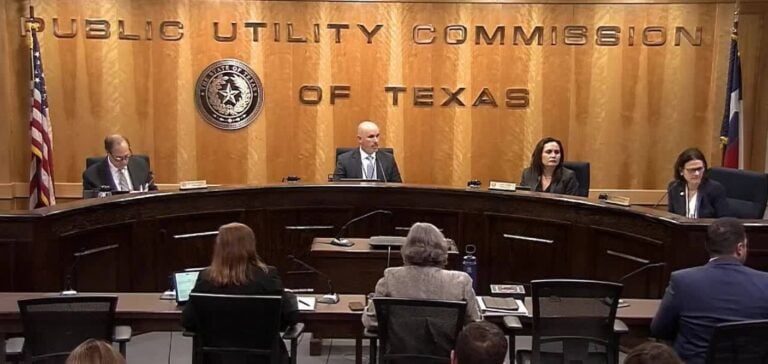The Public Utility Commission of Texas (PUTC) has rejected Aegle Power’s application for funding for a 1.3 gigawatt gas-fired power plant.
The rejection comes despite the recent announcement that the project had been selected as one of the finalists for the Texas Energy Fund (TEF), a program designed to support the production of electricity from natural gas.
The regulator’s decision highlights discrepancies over eligibility criteria and the transparency of the partners involved in the project.
Controversy surrounding NextEra’s involvement
The Aegle Power project, presented as a partnership with NextEra Energy Resources, was called into question after NextEra indicated that it had never agreed to be involved in the funding application.
In a letter to the PUTC, a NextEra official clarified that the company was not involved in the project and was not seeking any funding under the TEF.
This clarification raised questions about communication and coordination between potential partners, and the implications for the assessment of projects by regulators.
Regulatory Rigor and Texas Energy Strategy
The PUTC’s rejection of Aegle Power’s financing application illustrates the increased rigor of regulatory criteria and the need for enhanced due diligence.
As Texas strives to meet growing energy demand, regulators must balance the selection of viable projects with full transparency of the players involved.
This situation also highlights the challenges project developers face when navigating the state’s complex regulatory framework.
Prospects for Natural Gas Projects
The rejection of this funding request comes at a time when Texas is looking to boost its energy production capacity, particularly from natural gas, to ensure the reliability of the power grid in the face of peak consumption.
However, the PUTC’s criteria for selecting TEF-funded projects appear to be stricter than expected, particularly with regard to the clarity of partnerships and the commitment of industrial players.
This rejection could prompt other potential applicants to review their applications and improve coordination with their partners.
Impacts on Energy Developers
For power plant developers, this episode demonstrates the need for a rigorous approach when presenting projects to the authorities.
The Texas energy sector, already undergoing a transformation with increasing renewable generation capacity and gas supply challenges, faces strict compliance rules.
Companies must ensure that all aspects of their proposals are aligned with regulators’ expectations, and that all stakeholders are in agreement on project terms.
This situation highlights the growing demands for transparency and clarity in energy development projects.
In a context where energy supply remains a strategic priority for Texas, collaboration between regulators, companies and other stakeholders is crucial to the future of energy in the state.






















